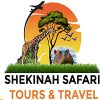Welcome to Lake Mburo National Park, Uganda’s compact wildlife haven that packs extraordinary safari experiences into its modest boundaries. As the only savanna park in Uganda with lakes, this unique destination offers remarkable wildlife viewing opportunities just a few hours from Kampala. From horseback safaris among zebras to night game drives tracking nocturnal predators, Lake Mburo delivers unforgettable adventures for every wildlife enthusiast.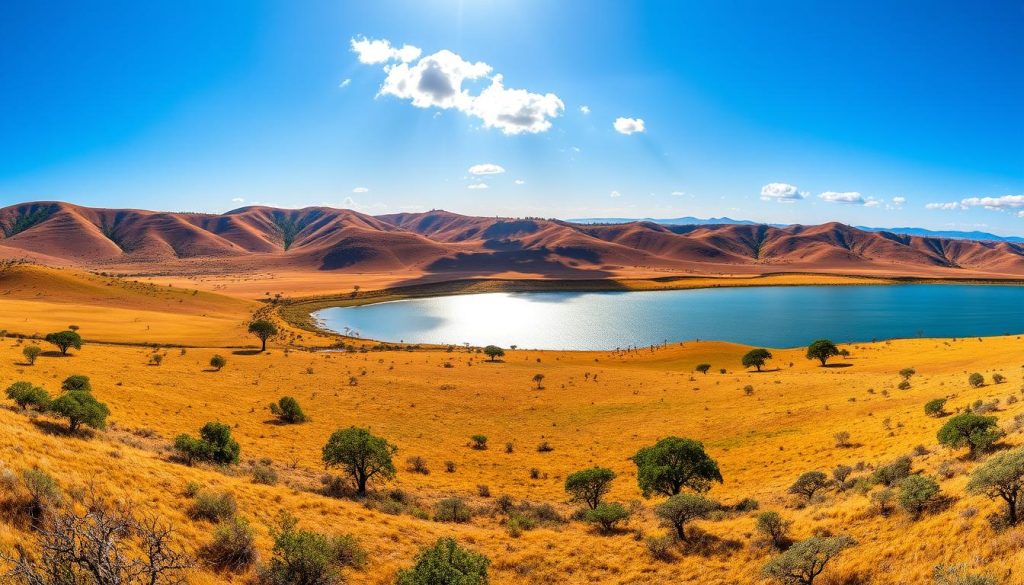
Park Overview: Uganda’s Accessible Wildlife Treasure
Lake Mburo National Park spans 370 square kilometers of diverse landscapes in western Uganda, making it the country’s smallest savanna national park. Located approximately 240 kilometers from Kampala and just 30 kilometers from Mbarara town, this accessible gem offers a perfect safari experience for travelers with limited time or those seeking to combine multiple destinations.
What makes Lake Mburo truly special is its unique ecosystem – the only protected area in Uganda that contains an entire lake. The park features five lakes, acacia woodlands, rolling hills, and grassy valleys that create diverse habitats for wildlife. This ecological variety allows visitors to experience different safari environments within a compact area.
The park’s history adds another fascinating dimension to your visit. Originally gazetted as a controlled hunting area in 1933, it gained national park status in 1983. Local folklore tells of two brothers, Mburo and Kigarama, who lived in these plains. According to legend, Kigarama warned his brother about a coming flood, but Mburo ignored him. When the flood came, Mburo drowned, and the lake was named after him.
Quick Facts:
- Size: 370 square kilometers
- Established: 1983
- Location: Western Uganda, between Masaka and Mbarara
- Distance from Kampala: 240 kilometers (3.5-4 hour drive)
- Unique feature: Only savanna park in Uganda with lakes
Ready to Explore Lake Mburo?
Our expert guides will help you discover the best of this unique national park with customized safari packages.
Wildlife: Surprising Diversity in a Compact Park
Despite its modest size, Lake Mburo National Park boasts remarkable biodiversity with 68 mammal species and over 350 bird species. While you won’t find elephants or lions here, the absence of large predators creates unique opportunities for walking safaris and close wildlife encounters that aren’t possible in other parks.
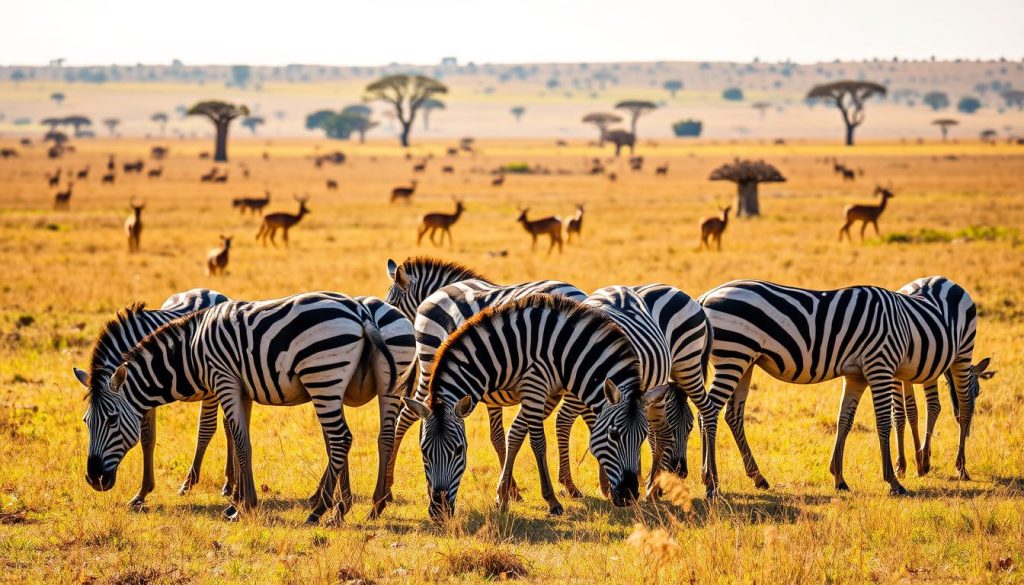
Mammals You’ll Encounter
Iconic Herbivores
- Burchell’s zebras (only place to see them in Uganda)
- Impala (largest population in Uganda)
- Eland (Africa’s largest antelope)
- Topi and bushbuck
- Buffalo herds
Aquatic Species
- Hippos in the lakes
- Nile crocodiles
- Sitatunga antelope in papyrus swamps
- Waterbuck near shorelines
- Numerous fish species
Elusive Creatures
- Leopards (primarily nocturnal)
- Spotted hyenas
- Jackals and serval cats
- Aardvarks (rare sightings)
- Pangolins (extremely rare)
Birdwatcher’s Paradise
Lake Mburo is a haven for bird enthusiasts with over 350 recorded species. The diverse habitats – from lake shores to acacia woodlands – create perfect conditions for both water birds and savanna specialists.
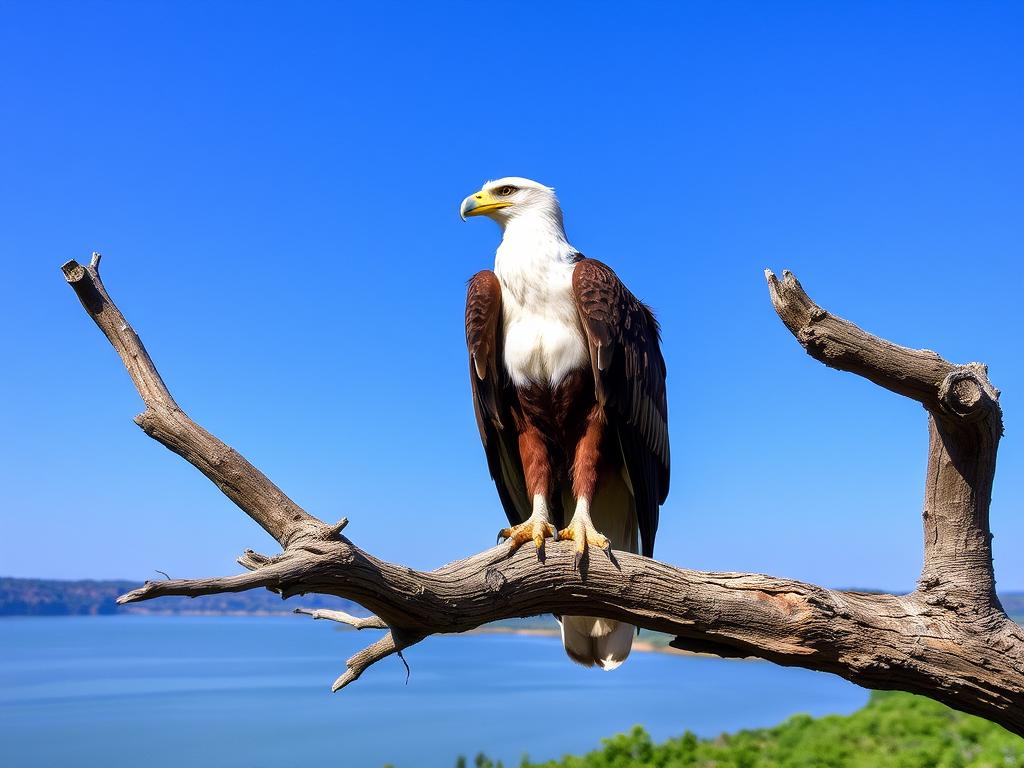
Notable Bird Species:
- African Fish Eagle (often seen near the lake)
- Rare Shoebill Stork (in papyrus swamps)
- Crested Crane (Uganda’s national bird)
- Marabou Stork and various herons
- Blue-naped Coucal and Bronze-tailed Starling
- Colorful bee-eaters and kingfishers
- Nubian Woodpecker and Bare-faced Go-away Bird
Wildlife Photography Safari
Capture stunning images of zebras, impalas, and rare birds with our specialized photography safari packages.
Activities: Diverse Safari Experiences
Lake Mburo National Park offers a remarkable variety of safari activities that make it stand out from other Ugandan parks. From traditional game drives to unique horseback safaris, there’s something for every adventure level and interest.
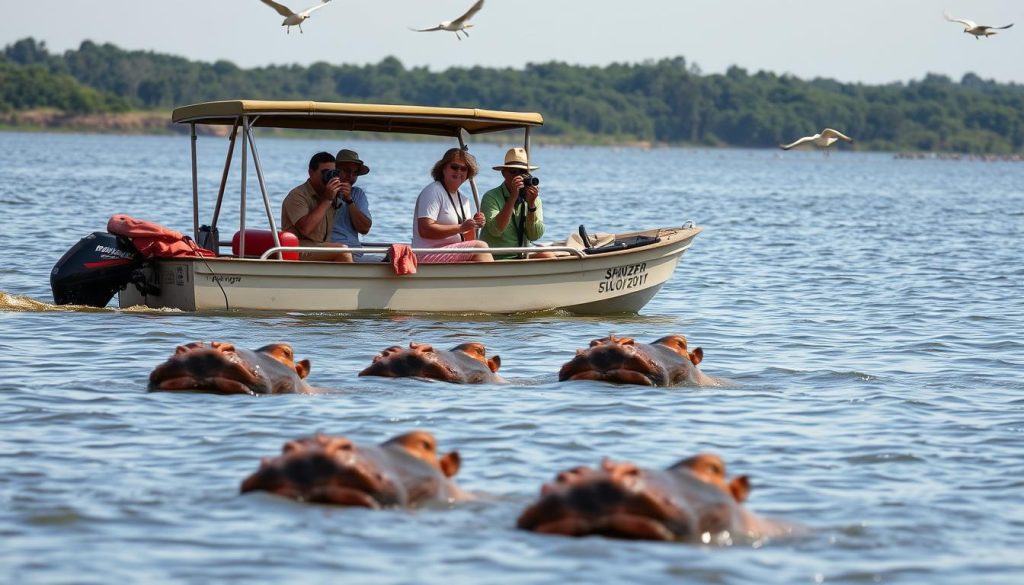
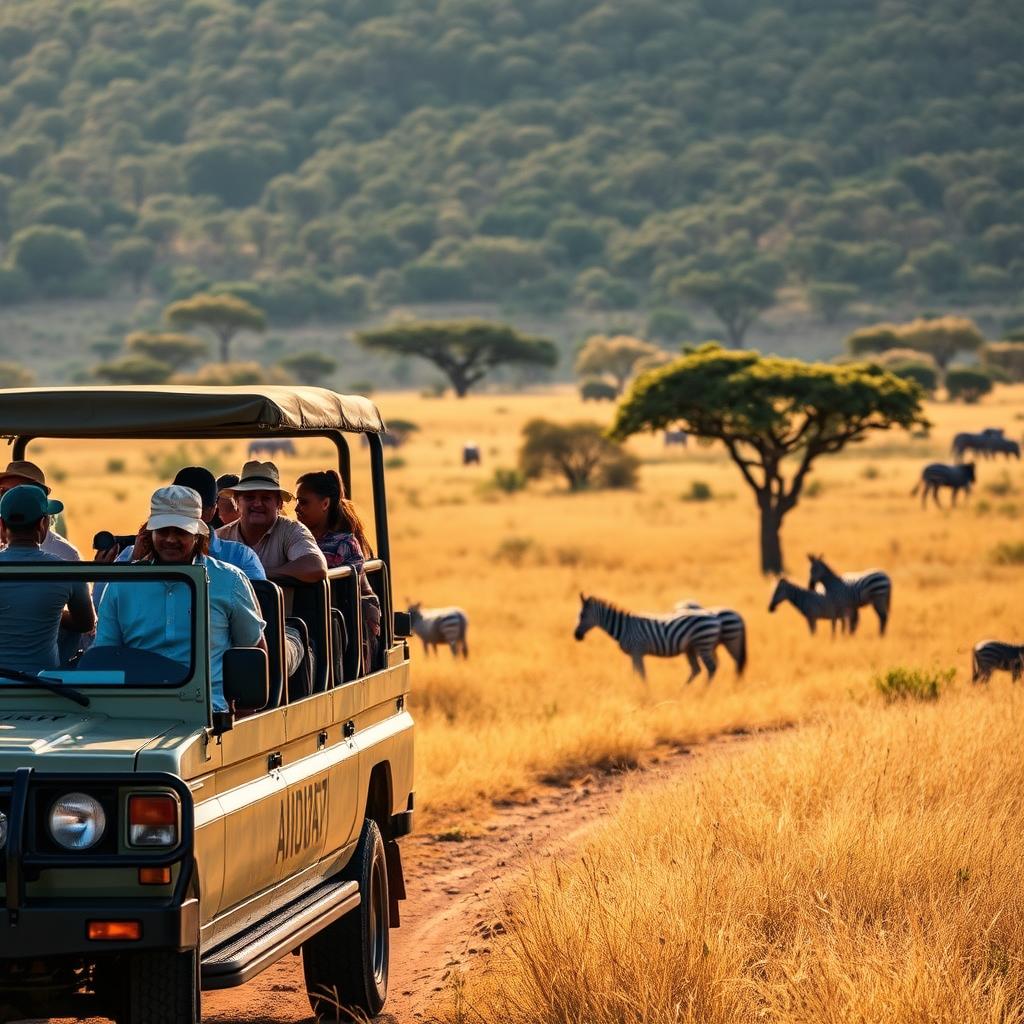
Game Drives
Explore the park’s diverse landscapes on traditional game drives. Morning drives offer excellent wildlife viewing as animals are most active, while evening drives provide opportunities to spot nocturnal species. Lake Mburo is one of the few parks in Uganda that offers night game drives, where you might spot leopards, hyenas, and other nocturnal creatures.
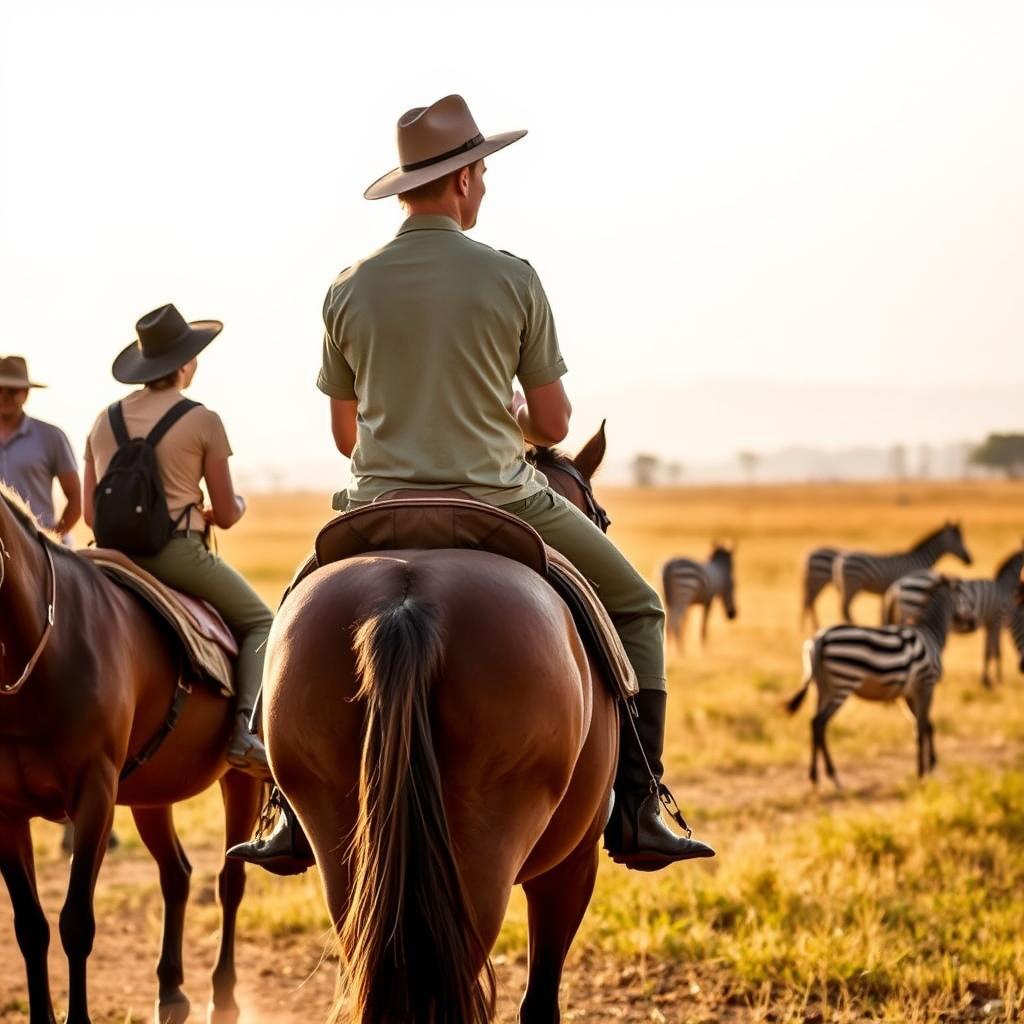
Horseback Safaris
Experience a truly unique safari adventure on horseback. Unlike vehicles, horses can approach wildlife without causing alarm, allowing for incredibly close encounters with zebras, impalas, and other animals. These safaris range from 1-hour introductory rides to full-day expeditions for experienced riders.
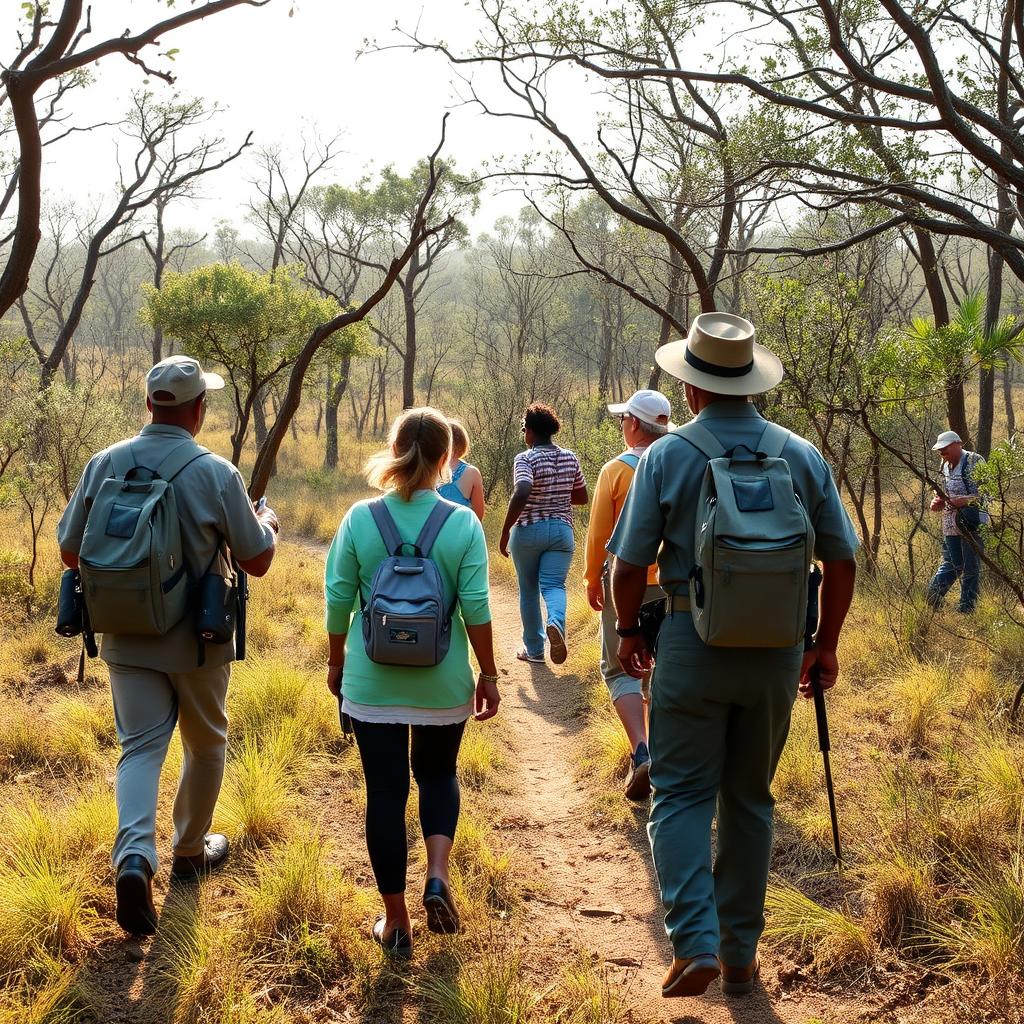
Guided Nature Walks
Explore the park on foot with knowledgeable guides who reveal hidden details of the ecosystem. Walking safaris offer a more intimate connection with nature, allowing you to discover smaller creatures, plants, and tracks you might miss from a vehicle. The salt lick walk is particularly popular for wildlife viewing.
Boat Cruises
Glide across Lake Mburo on a relaxing boat cruise to observe hippos, crocodiles, and numerous water birds in their natural habitat. The two-hour cruises provide excellent photography opportunities and a different perspective of the park’s ecosystem. Early morning and late afternoon cruises offer the best wildlife sightings.
Mountain Biking
For adventure enthusiasts, mountain biking trails wind through the eastern part of the park. Accompanied by a guide, you can cycle through beautiful landscapes while spotting wildlife. Bikes are available for rent at the park headquarters.
Sport Fishing
Try catching tilapia, catfish, and other species in Lake Mburo. The park provides fishing equipment; guides can show you the best spots. This activity requires booking and a special fishing permit.
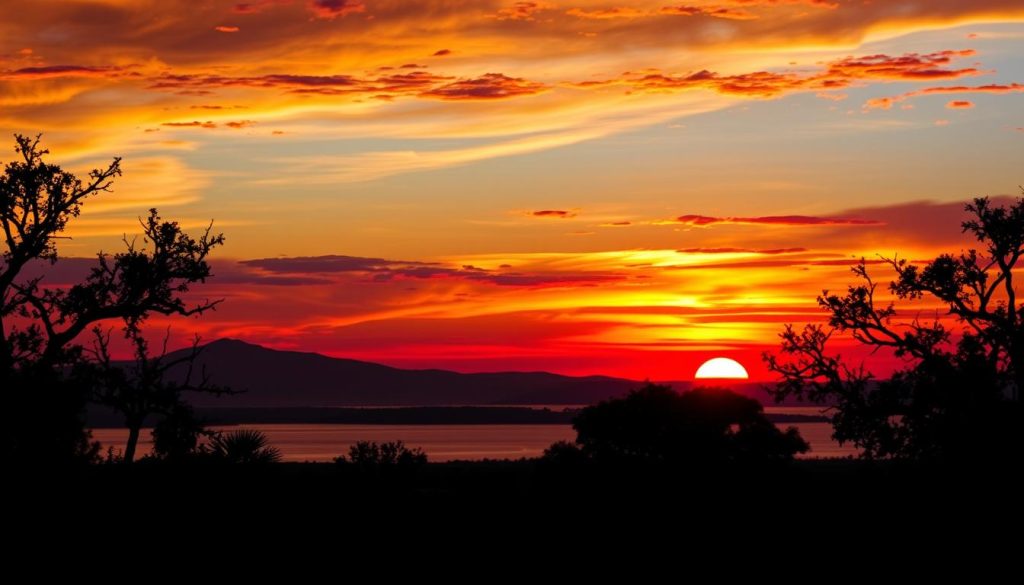
Create Your Perfect Safari Itinerary
Combine multiple activities for the ultimate Lake Mburo experience with our customized safari packages.
Accommodation: From Luxury to Budget Options
Lake Mburo National Park offers a range of accommodation options to suit every preference and budget. You’ll find comfortable resting places after exciting safari adventures, from luxury lodges with stunning views to budget-friendly campsites.
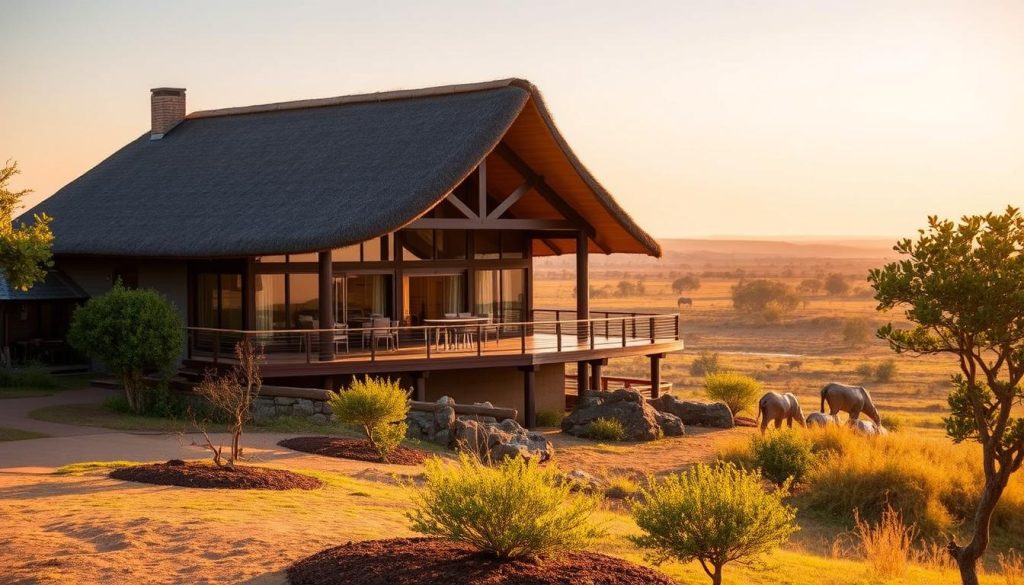
Luxury Lodges
- Mihingo Lodge – Perched on a rocky outcrop with panoramic views
- Lake Mburo Safari Lodge – Elegant tented suites with private verandas
- Kigambira Safari Lodge – Contemporary design with infinity pool
These properties offer exceptional service, gourmet dining, and luxurious amenities. Most feature private viewing decks, swimming pools, and guided activities.
Mid-Range Options
- Rwakobo Rock Lodge – Eco-friendly cottages on a granite outcrop
- Mantana Tented Camp – Classic safari tents with en-suite facilities
- Arcadia Cottages – Comfortable rooms with lake views
- Eagle’s Nest Lodge – Rustic charm with excellent bird watching
These accommodations provide good value with comfortable rooms, quality dining, and helpful staff to enhance your safari experience.
Budget Accommodations
- Rwonyo Rest Camp – Simple bandas and camping facilities
- Lake Mburo Campsite – Basic camping with shared facilities
- UWA Bandas – Affordable rooms run by Uganda Wildlife Authority
These options are perfect for budget-conscious travellers seeking an authentic wilderness experience. Basic amenities are provided, and you’ll still enjoy excellent access to all park activities.
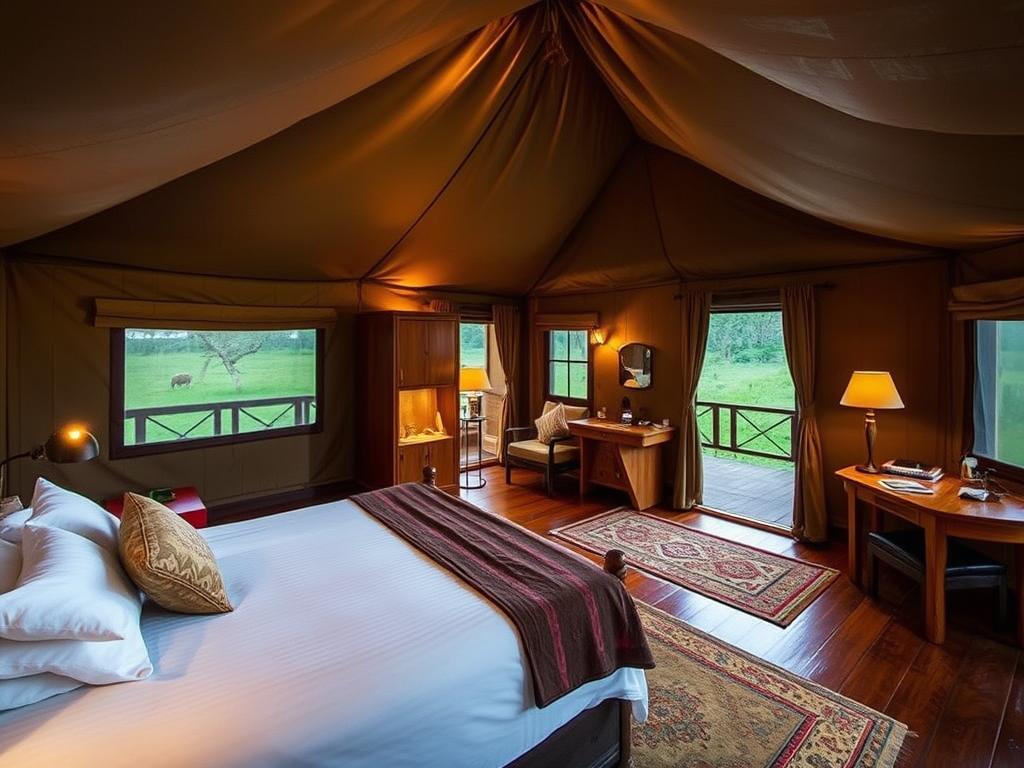
Travel Tips: Planning Your Visit
Proper planning ensures a smooth and enjoyable safari experience at Lake Mburo National Park. Here are essential tips to help you prepare for your adventure.
Best Time to Visit
Lake Mburo National Park is open year-round, but the best wildlife viewing occurs during the dry seasons:
- December to February – Short dry season with excellent wildlife viewing
- June to September – Long dry season when animals gather around water sources
The wet seasons (March-May and October-November) offer lush landscapes and fewer visitors but may have muddy roads and occasional rain interruptions.
Park Fees
| Visitor Category | 24-Hour Fee (USD) |
| Foreign Non-Residents | $40 |
| Foreign Residents | $30 |
| East African Citizens | UGX 20,000 |
| Vehicle Fee | $10-$50 (depending on size) |
Additional fees apply for specific activities, such as guided walks ($30), boat cruises ($30), and night game drives ($30).
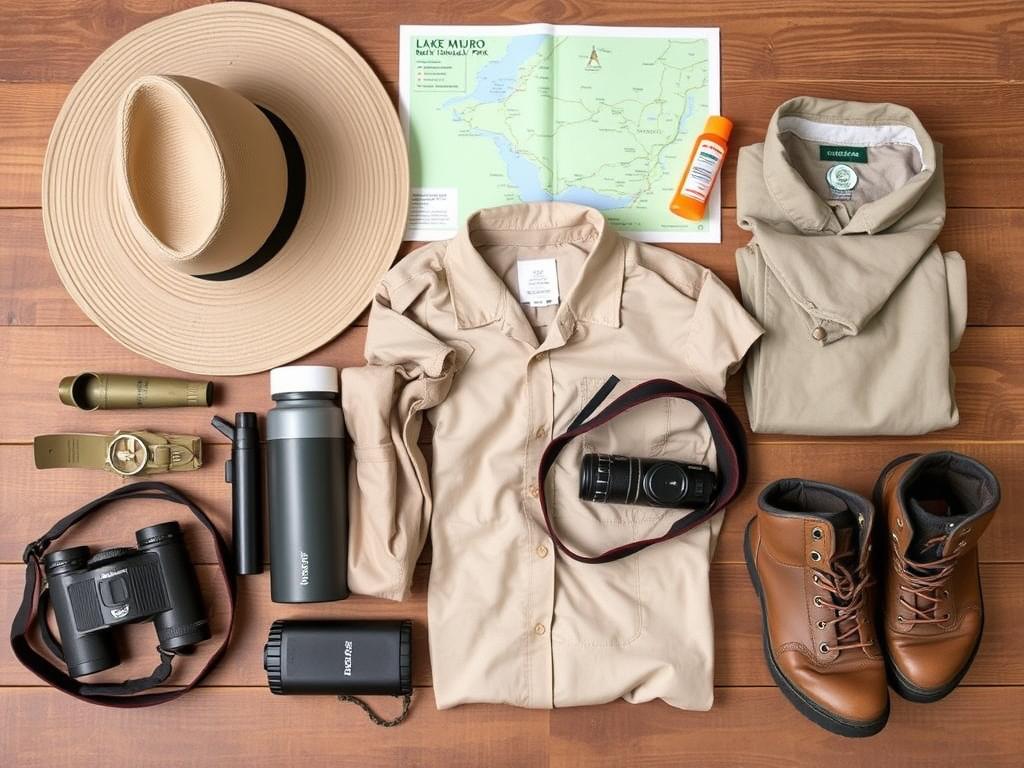
Packing Essentials
- Lightweight, neutral-colored clothing (avoid bright colours)
- Long-sleeved shirts and pants for sun protection
- Sturdy walking shoes or hiking boots
- Wide-brimmed hat and sunglasses
- High-SPF sunscreen and insect repellent
- Binoculars and a camera with a zoom lens
- Reusable water bottle and daypack
- Basic first aid kit and personal medications
- Flashlight or headlamp for night activities
Getting There
Lake Mburo National Park is approximately 240 kilometres from Kampala, accessible via these routes:
- Kampala-Masaka-Mbarara Highway: Turn at the Sanga signpost, 13km after Lyantonde (4-hour drive)
- From Mbarara: 30km east of the city (45-minute drive)
Most visitors arrive with organised safari tours that include transportation. 4WD vehicles are recommended, especially during rainy seasons.
Questions about planning your visit? Speak with a safari expert:
Conservation: Protecting Wildlife Corridors
Lake Mburo National Park is crucial in Uganda’s conservation efforts, particularly as a wildlife corridor connecting different ecosystems. Understanding the park’s conservation challenges and successes enhances appreciation for this special place.
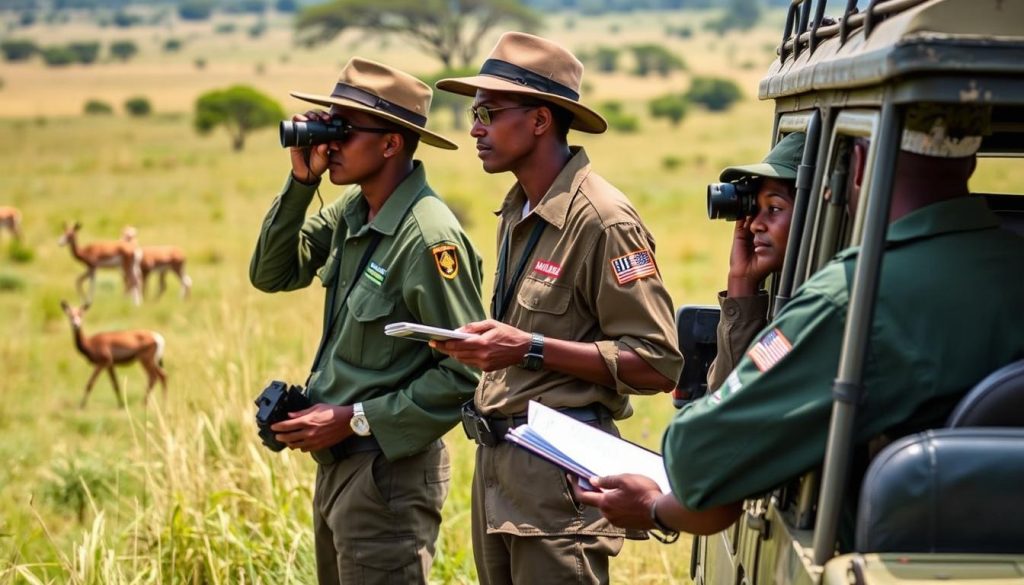
Conservation Challenges
Lake Mburo faces unique conservation challenges due to its location, surrounded by cattle ranches and agricultural communities:
- Human-wildlife conflict with neighbouring communities
- Pressure on park boundaries from expanding agriculture
- Poaching threatens to particular species
- Balancing tourism development with ecosystem protection
- Managing invasive plant species that threaten native habitats
Conservation Successes
Despite these challenges, Lake Mburo has achieved significant conservation successes:
- Successful reintroduction of Rothschild giraffes in 2015
- Growing zebra and impala populations
- Community conservation initiatives with local Bahima pastoralists
- Revenue-sharing programs that benefit surrounding communities
- Sustainable tourism practices that minimise environmental impact
“Lake Mburo National Park demonstrates how conservation, communities, and tourism can work together to protect Uganda’s natural heritage while providing sustainable livelihoods.”
— Uganda Wildlife Authority
Support Conservation Efforts
Contribute to Lake Mburo National Park’s wildlife corridor protection and community conservation initiatives.
Why Lake Mburo National Park Is a Must-Visit
Lake Mburo National Park may be Uganda’s smallest savanna park, but it delivers extraordinary safari experiences that rival its larger counterparts. Its accessibility, diverse activities, and unique wildlife make it perfect for first-time safari-goers and experienced wildlife enthusiasts.
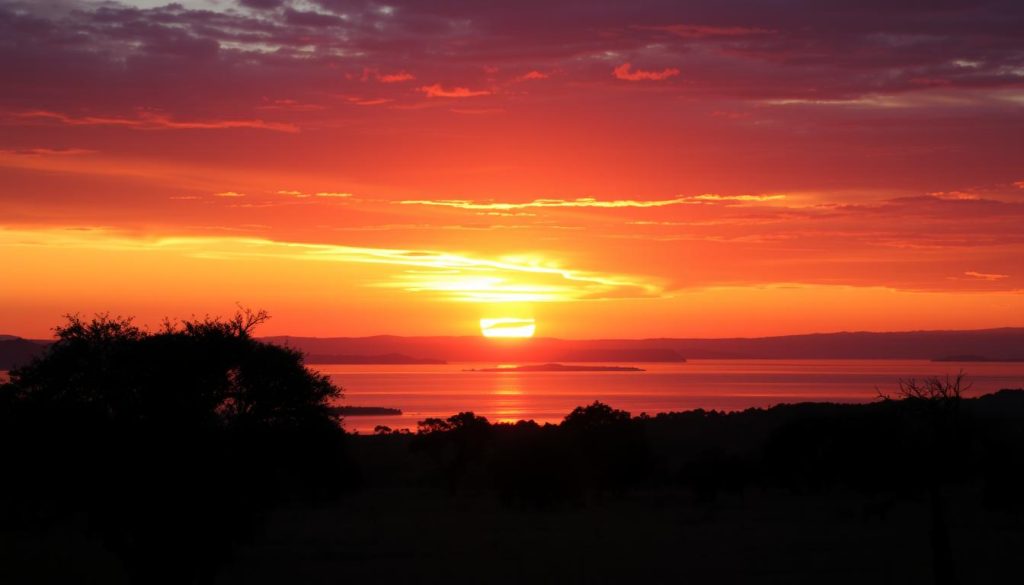
Perfect for Short Safaris
Just a few hours from Kampala, Lake Mburo offers authentic safari experiences even on a tight schedule. It’s ideal for weekend getaways or as part of a longer Uganda itinerary.
Unique Wildlife Encounters
It is the only place in Uganda where you can see impala and one of the few places where you can see Burchell’s zebra. The absence of elephants and lions creates opportunities for walking and horseback safaris that are impossible elsewhere.
Diverse Activities
From boat cruises to night drives, Lake Mburo offers more activity variety per square kilometre than any other Ugandan park, ensuring memorable experiences for every visitor.
Begin Your Lake Mburo Adventure
Our expert guides and customised safari packages will help you experience the best of Lake Mburo National Park.
Or call our safari specialists directly:
Location Map
Lake Mburo National Park is located in western Uganda, approximately 240km from Kampala.
